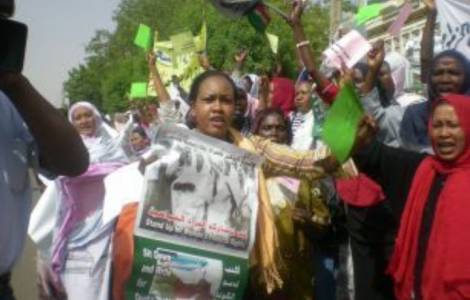
Khartoum (Agenzia Fides) - In Sudan, almost nine out of ten women are subjected to female genital mutilation (FGM), despite the fact that a law penalizing this practice has been in force since July 2020. In the country, in addition to violence, abuse and exploitation, a third of girls between the ages of 0 and 14 have been subjected to FGM.
According to a recent report by the United Nations Children's Fund (UNICEF), the phenomenon, which violates the fundamental rights of millions of human beings around the world, is recognized as a "crime" after the amendment to Article 141 of the Penal Code. And it is precisely in the African country where progress is beginning to be seen, with more than 1,300 communities throughout Sudan that have publicly declared the end of the practice of female genital mutilation.
In addition, according to the 2018 Report of the Simple Spatial Survey Method in Sudan, there has been a decrease in the prevalence of FGM from 89% in 2010 to 83.9% in 2018. The organization behind the study points out that, thanks to support for the community dialogue, social mobilization services and the promotion of political advocacy, more than 200 communities from 20 towns have committed to abandoning FGM.
The World Health Organization estimates that there are more than 200 million women who have undergone genital mutilation in countries where the practice is concentrated, and some 3 million girls are at risk of suffering it each year, most before the age of 15. The practice is prevalent mainly in some 30 countries in Africa and the Middle East, but also in some countries in Asia and Latin America and among communities in these regions.
The fact that Sudan continues to receive refugees from neighboring Ethiopia, Eritrea, Chad, the Central African Republic and South Sudan, and in recent years also from Syria and Yemen, makes the issue of child protection increasingly sensitive. Humanitarian needs continue to increase, fueled by various factors such as the economic crisis, food insecurity, floods, epidemics and intercommunal violence. And it is also within these complex emergencies that the protection of children from violence, exploitation, abuse and neglect is challenged again and again. (AP) (Agenzia Fides, 12/4/2023)